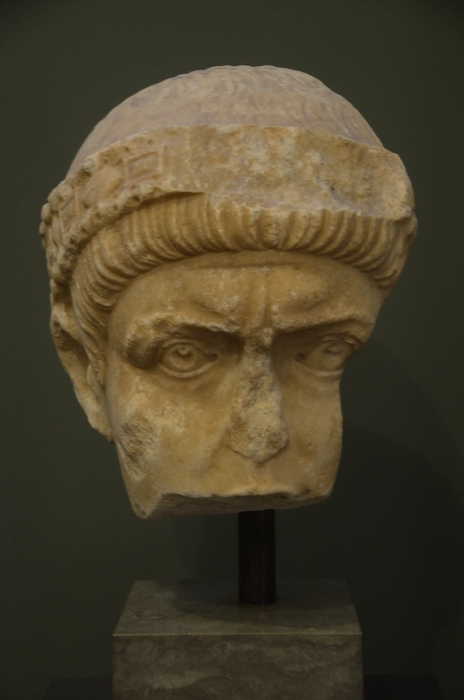|
Fraomar
Fraomar ( la, Fraomarius) was briefly the king of the Bucinobantes, an Alamannic tribe, from c.372 to 373. In 372/3, the Roman emperor Valentinian I attacked the Alamanni and attempted to take their 'king', Macrian Macrian or Makrian ( la, Macrianus) was the king of the Bucinobantes, an Alemannic tribe, in the late fourth century and the brother of Hariobaudes. Macrian tried to confederate all the north Germanic and Alemannic tribes together against Rome. ..., prisoner. Fraomar was set up in his place, but the Alamanni were unhappy and Macrian was eventually returned to power by his supporters. In 374 Valentinian was forced to make peace with Macrian. Sources *''Ammianus'' Book 29. *Drinkwater, J F ''The Alamanni and Rome 213-496'' Oxford 2007 Alemannic rulers 4th-century monarchs in Europe ... [...More Info...] [...Related Items...] OR: [Wikipedia] [Google] [Baidu] |
Bucinobantes
The Bucinobantes (German: ''Bucinobanten'') were an Alemannic tribe in the region of the modern city of Mainz on the river Main. The Roman historian Ammianus Marcellinus wrote that Caesar Julian crossed the river Rhine near Mainz in 359 for negotiations with Macrian, the chieftain of the Bucinobantes, and with other Alamannic chiefs. After several rebellions against the Roman Empire, the emperor Valentinian I failed in his attempt (with the support of the Burgundians) to arrest Macrian. Valentinian appointed Fraomar as chieftain of the Bucinobantes, but they refused to accept the appointment. In the end Valentinian was forced in 371 to agree to an alliance with Macrian. Possibly as part of a deal with Macrian, in 371 Valentinian relocated Fraomar and his followers from Mainz to Britain.Ammianus Marcellinus Ammianus Marcellinus (occasionally anglicised as Ammian) (born , died 400) was a Roman soldier and historian who wrote the penultimate major historical account surviv ... [...More Info...] [...Related Items...] OR: [Wikipedia] [Google] [Baidu] |
Valentinian I
Valentinian I ( la, Valentinianus; 32117 November 375), sometimes called Valentinian the Great, was Roman emperor from 364 to 375. Upon becoming emperor, he made his brother Valens his co-emperor, giving him rule of the eastern provinces. Valentinian retained the west. During his reign, Valentinian fought successfully against the Alamanni, Quadi, and Sarmatians. Most notable was his victory over the Alamanni in 367 at the Battle of Solicinium. His general Count Theodosius defeated a revolt in Africa and the Great Conspiracy, a coordinated assault on Roman Britain by Picts, Scots, and Saxons. Valentinian was also the last emperor to conduct campaigns across both the Rhine and Danube rivers. Valentinian rebuilt and improved the fortifications along the frontiers, even building fortresses in enemy territory. He founded the Valentinianic dynasty, with his sons Gratian and Valentinian II succeeding him in the western half of the empire. Early life Valentinian was born in 32 ... [...More Info...] [...Related Items...] OR: [Wikipedia] [Google] [Baidu] |
Macrian
Macrian or Makrian ( la, Macrianus) was the king of the Bucinobantes, an Alemannic tribe, in the late fourth century and the brother of Hariobaudes. Macrian tried to confederate all the north Germanic and Alemannic tribes together against Rome. According to Ammianus Marcellinus, In 359 Julian the Apostate took Mogontiacum (Mainz on the Rhine) and, after the exchange of prisoners, made treaties of peace with the various Alemanni kings, Macrian, Hariobaudes, Urius, Ursicinus, Vadomarius, and Vestralpus. Due to continuing unrest, however, the emperor Valentinian I, in the year 370, invaded Alemannia and deposed Macrian, whom he labelled ''turbarum rex artifex'' ("king and crafter of unrest"). With the help of deserters, Macrian was captured and imprisoned. In his place was set up Fraomar, but the Bucinobantes would not accept him and he was expelled and Macrian restored. In 371 Valentinian was forced to grant Macrian an alliance; the Bucinobantes became '' foederati'' of Rome an ... [...More Info...] [...Related Items...] OR: [Wikipedia] [Google] [Baidu] |
Alamanni
The Alemanni or Alamanni, were a confederation of Germanic tribes * * * on the Upper Rhine River. First mentioned by Cassius Dio in the context of the campaign of Caracalla of 213, the Alemanni captured the in 260, and later expanded into present-day Alsace, and northern Switzerland, leading to the establishment of the Old High German language in those regions, by the eighth century named ''Alamannia''. In 496, the Alemanni were conquered by Frankish leader Clovis and incorporated into his dominions. Mentioned as still pagan allies of the Christian Franks, the Alemanni were gradually Christianized during the seventh century. The is a record of their customary law during this period. Until the eighth century, Frankish suzerainty over Alemannia was mostly nominal. After an uprising by Theudebald, Duke of Alamannia, though, Carloman executed the Alamannic nobility and installed Frankish dukes. During the later and weaker years of the Carolingian Empire, the Alemannic c ... [...More Info...] [...Related Items...] OR: [Wikipedia] [Google] [Baidu] |
Alemannic Rulers
Alemannic (''Alamannic'') or Alamanni may refer to: * Alemannic German, a dialect family in the Upper German branch of the German languages and its speakers * Alemanni, a confederation of Suebian Germanic tribes in the Roman period * Alamanni (surname) See also *Alemannia (other) *Alemannic separatism Alemannic Separatism is a historical movement of separatism of the Alemannic-German-speaking areas of Austria, France, and Germany (viz., South Baden, Swabia (viz. most of Württemberg and Bavarian Swabia), Alsace and Vorarlberg), aiming ... * Allemand (other) {{disambig ... [...More Info...] [...Related Items...] OR: [Wikipedia] [Google] [Baidu] |

